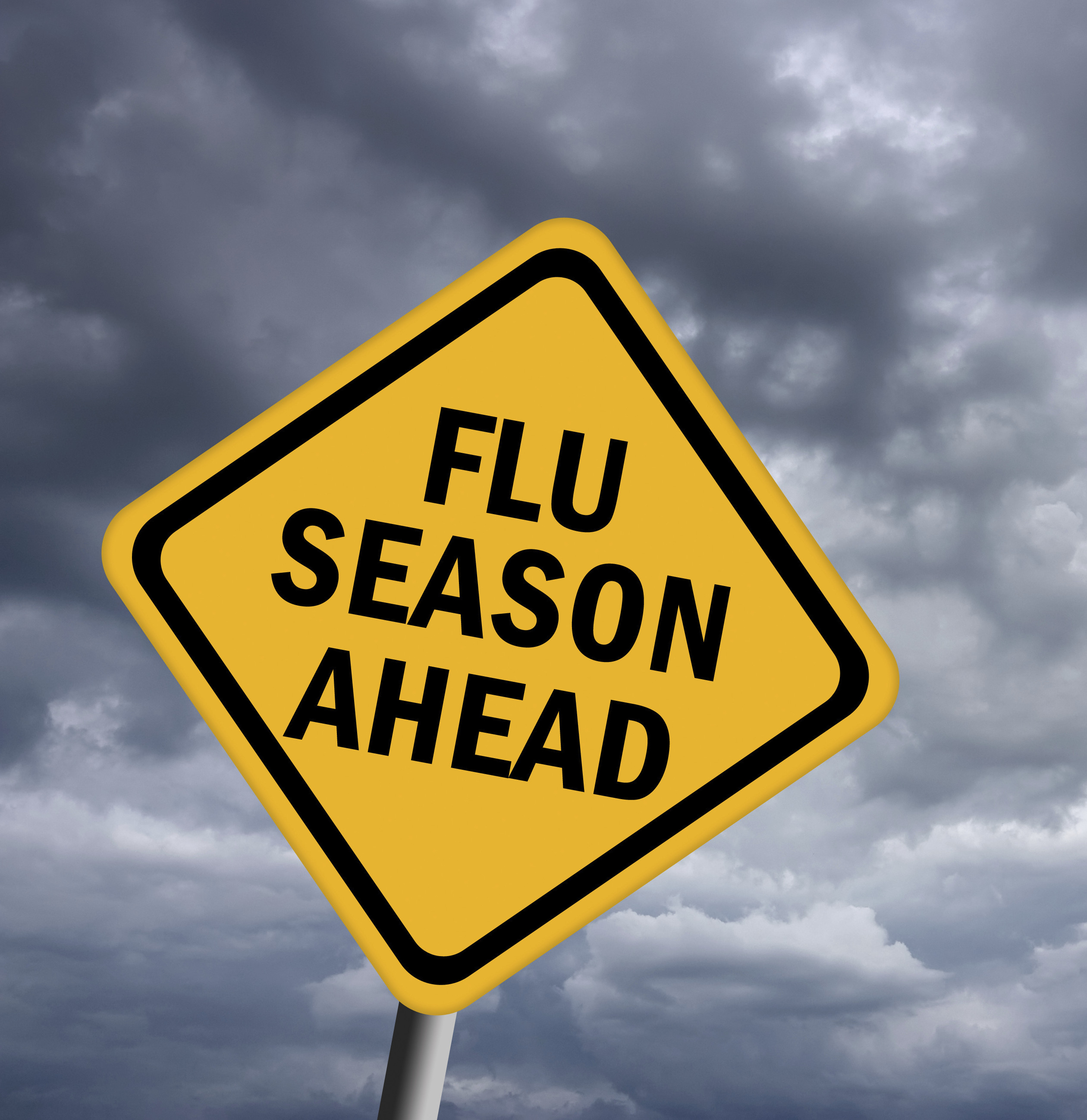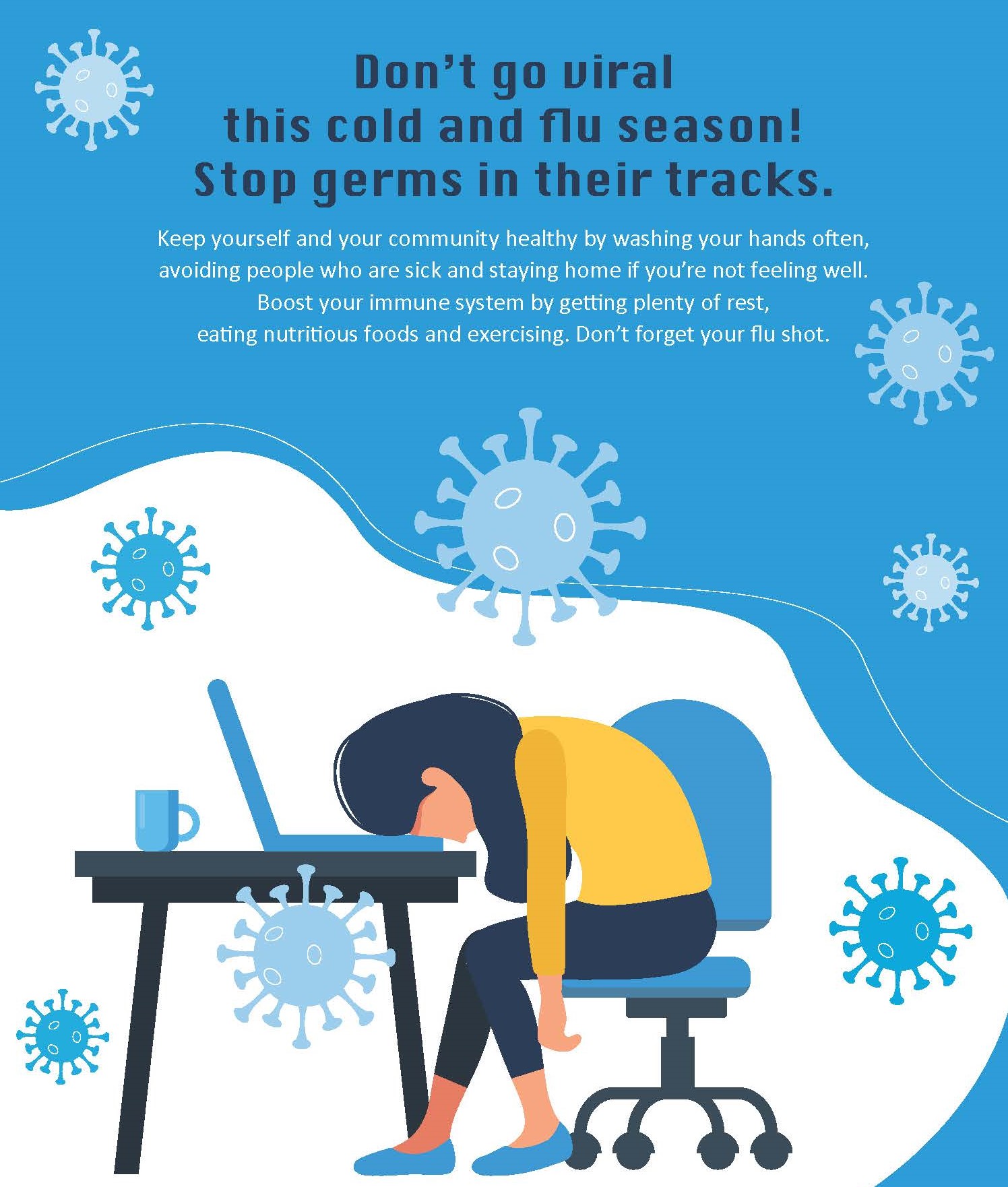Flu season is upon us, and it's more important than ever to stay ahead of the curve. "Stay Ahead Of The Flu Season: A Comprehensive Guide To Viruses In Circulation" is a new report that provides everything you need to know about this year's flu season.
Editor's Note: "Stay Ahead Of The Flu Season: A Comprehensive Guide To Viruses In Circulation" was published on [date]. This report is essential reading for anyone who wants to stay healthy this flu season.
Our team of experts has analyzed the latest data and dug into the research to put together this comprehensive guide. We'll cover everything from the different strains of the flu virus to the best ways to prevent and treat it.
Key Differences or Key Takeaways
| Influenza A | Influenza B | |
|---|---|---|
| Symptoms | Fever, chills, muscle aches, headache, fatigue, cough, sore throat, runny nose | Fever, chills, muscle aches, headache, fatigue, cough, sore throat, runny nose |
| Treatment | Antiviral medications, rest, fluids | Antiviral medications, rest, fluids |
| Prevention | Flu vaccine, handwashing, avoiding contact with sick people | Flu vaccine, handwashing, avoiding contact with sick people |
Transition to main article topics
In this guide, you'll learn about:
- The different strains of the flu virus
- The symptoms of the flu
- How to prevent the flu
- How to treat the flu
- What to do if you get sick

Five Ways to Prevent the Flu (and Still Donate Blood) — Stanford Blood - Source stanfordbloodcenter.org
Don't wait until it's too late. Get your copy of "Stay Ahead Of The Flu Season: A Comprehensive Guide To Viruses In Circulation" today.
FAQs
Stay Ahead Of The Flu Season: A Comprehensive Guide To Viruses In Circulation outlines common concerns regarding the flu season and provides evidence-based responses. This FAQ section aims to address frequently asked questions and clear up misconceptions.

Cold Flu Season 2024 - Isa Marnia - Source carodonnamarie.pages.dev
Question 1: What is the flu?
The flu, short for influenza, is a respiratory illness caused by influenza viruses. It is highly contagious and can spread through droplets released when an infected person coughs, sneezes, or talks.
Question 2: What are the symptoms of the flu?
Symptoms typically include fever, chills, cough, sore throat, runny nose, body aches, and fatigue. In severe cases, the flu can lead to pneumonia, bronchitis, and other complications.
Question 3: How is the flu transmitted?
The flu is primarily transmitted through respiratory droplets, which can be inhaled or come into contact with mucous membranes in the mouth, nose, or eyes.
Question 4: How can I prevent getting the flu?
The most effective way to prevent the flu is to get vaccinated annually. Other preventive measures include frequent handwashing, covering coughs and sneezes, and avoiding contact with sick individuals.
Question 5: What should I do if I get the flu?
If you suspect you have the flu, it is important to consult a healthcare professional promptly. Home remedies, such as rest, fluids, and over-the-counter medications, can alleviate symptoms.
Question 6: Is the flu vaccine safe?
The flu vaccine is generally considered safe and effective. It is made with inactivated viruses or parts of viruses, which cannot cause the flu.
By understanding the answers to these common questions, individuals can stay informed and take necessary precautions to protect themselves against the flu virus.
Learn more about the different viruses in circulation and the importance of regular vaccinations by exploring the comprehensive guide on the linked page.
Tips
To remain vigilant during the Flu season, incorporating these tips into one’s routine can significantly reduce the risk of infection:
Tip 1: Prioritize Vaccination: Receiving the annual influenza vaccine remains the most effective method of preventing infection. The vaccine is tailored to target prevalent strains, providing substantial protection against severe illness, complications, and hospitalization. Those with chronic health conditions, the elderly, and children should consider early vaccination to ensure optimal immunity.
Tip 2: Practice Frequent Hand Hygiene: Maintaining impeccable hand hygiene is paramount in preventing the spread of viruses. Regularly washing hands with soap and water for at least 20 seconds, especially after coughing, sneezing, or using public spaces, significantly reduces the risk of infection. If soap and water are unavailable, opt for alcohol-based hand sanitizer with at least 60% alcohol content.
Tip 3: Avoid Touching Eyes, Nose, and Mouth: Refrain from touching one’s face, particularly the eyes, nose, and mouth, as these are common entry points for viruses. Unconsciously touching the face transfers germs from contaminated surfaces, increasing the likelihood of infection. Maintaining a conscious effort to minimize face touching can drastically reduce exposure to viruses.
Tip 4: Maintain Social Distancing: When possible, maintain a distance of at least six feet from individuals exhibiting symptoms of illness. Avoid crowded places and limit close contact with others, especially during peak flu season. Social distancing effectively minimizes the risk of inhaling respiratory droplets carrying the virus, reducing the probability of infection.
Tip 5: Cover Coughs and Sneezes: When coughing or sneezing, cover the mouth and nose with a tissue or the inside of the elbow. Avoid using bare hands, as this can spread the virus to surfaces and objects, potentially infecting others. Promptly discard used tissues and wash hands thoroughly to prevent further transmission.
Tip 6: Stay Home When Sick: If experiencing flu-like symptoms, isolate at home until fever-free for at least 24 hours without the use of fever-reducing medications. Staying home prevents the spread of infection to others, allowing ample time for recovery. Encourage others who are sick to do the same to minimize community transmission.
Tip 7: Disinfect Surfaces Regularly: Frequently clean and disinfect commonly touched surfaces, such as doorknobs, countertops, and electronics, using household cleaners or disinfectant wipes. These surfaces can harbor viruses, and regular disinfection helps reduce the risk of transmission through indirect contact.
Tip 8: Strengthen Immune System: Maintain a healthy immune system through proper nutrition, adequate sleep, and regular exercise. A robust immune system enhances the body’s ability to fight off infections, including the flu. Incorporate plenty of fruits, vegetables, and whole grains into the diet, aim for 7-9 hours of sleep each night, and engage in moderate physical activity most days of the week.
By adhering to these comprehensive tips, individuals can significantly reduce their risk of infection during the Flu season. Prioritizing vaccination, practicing good hygiene, maintaining social distancing, and strengthening the immune system are foundational strategies for staying healthy and preventing the spread of viruses.
Stay Ahead Of The Flu Season: A Comprehensive Guide To Viruses In Circulation
The flu season is a time of heightened concern for many people, and with good reason. The flu virus is highly contagious and can cause serious illness, especially in vulnerable populations such as the elderly, young children, and those with chronic health conditions. In order to stay ahead of the flu season, it is essential to be aware of the viruses that are in circulation and to take steps to protect yourself and your loved ones.
- Identify the viruses: The first step to staying ahead of the flu season is to identify the viruses that are in circulation. This information can be obtained from public health agencies and websites, and it is important to stay up-to-date on the latest developments.
- Understand the symptoms: Once you know which viruses are in circulation, it is important to understand the symptoms of each virus. This will help you to recognize the flu if you or someone you know becomes ill, and it will also help you to take appropriate steps to prevent the spread of the virus.

Pin on Nurse practioner - Source www.pinterest.com - Get vaccinated: The flu vaccine is the best way to protect yourself from the flu. The vaccine is safe and effective, and it can significantly reduce your risk of getting the flu, as well as the severity of your symptoms if you do get sick.
- Practice good hygiene: Good hygiene is essential for preventing the spread of the flu virus. This includes washing your hands frequently with soap and water, covering your mouth and nose when you cough or sneeze, and avoiding close contact with people who are sick.
- Stay home if you're sick: If you do get sick, it is important to stay home from work or school to avoid spreading the virus to others. This will help to prevent the spread of the flu and protect your loved ones.
- See a doctor if you're concerned: If you have any concerns about the flu, it is important to see a doctor. Your doctor can help you to determine if you have the flu and can provide you with the appropriate treatment.
By following these tips, you can stay ahead of the flu season and protect yourself and your loved ones from the flu virus. The flu season is a time of heightened concern, but by taking the necessary precautions, you can reduce your risk of getting sick and help to keep your community healthy.
Stay Ahead Of The Flu Season: A Comprehensive Guide To Viruses In Circulation
"Stay Ahead Of The Flu Season: A Comprehensive Guide To Viruses In Circulation" is a critical resource that provides crucial information on the viruses circulating during flu season. Understanding these viruses and their characteristics is essential for developing effective prevention and treatment strategies. The guide offers a detailed analysis of different strains, their behavior, and potential impact. By staying ahead of the flu season with this comprehensive guide, individuals can arm themselves with knowledge and empower themselves to make informed decisions about their health.

2024-2025 Flu Vaccine Recommendation - North Carolina Medical Society - Source ncmedsoc.org
The guide highlights the significance of early detection and intervention to minimize the severity and spread of flu viruses. It provides insights into the latest advancements in vaccine development and treatment options, emphasizing the role of healthcare providers in monitoring and managing the flu season. "Stay Ahead Of The Flu Season: A Comprehensive Guide To Viruses In Circulation" serves as a valuable instrument for individuals, healthcare professionals, and public health organizations alike, enabling them to stay informed and make proactive choices to protect their well-being.
To further enhance its practicality, the guide includes easy-to-understand tables that summarize the key characteristics, symptoms, and prevention measures associated with different flu viruses. These tables provide quick reference points, allowing users to identify the specific viruses in circulation and devise appropriate strategies to minimize their impact.
